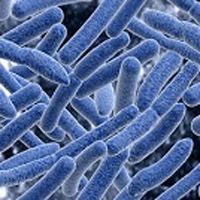Article
Gut Bacteria Contribute to Tumor Immunotherapy
Author(s):
Gut bacteria play a significant role in cancer immunotherapy, according to the findings of a mice model study published in the journal Science.

Gut bacteria play a significant role in cancer immunotherapy, according to the findings of a mice model study published in the journal Science.
Researchers from the University of Chicago Medical Center compared melanoma growth in mice models that had been introduced to bacteria in the digestive tract to determine the risk of amplifying the mice’s cancer immunotherapy. The researchers said the bacteria, called checkpoint inhibitors, such as ipilimumab, nivolumab and pembrolizumab, have impacted tumor treatments in the past. One group of mice from showed a spontaneous but vigorous response to small melanoma tumors implanted under their skin, but mice from another source did not show this response.
After the mice cohabitated for three weeks, the differences disappeared. This lead the researchers to hypothesize the bacteria played a role in this immunotherapy.
The researchers then collected fecal matter from the first group of mice to transfer it into the stomachs of the second group of mice. The second group of mice was able to exhibit their own strong response to delay tumor growth. Transferring bacteria between the mice in reverse had no effect on the immunotherapy.
“Our results clearly demonstrate a significant, although unexpected, role for specific gut bacteria in enhancing the immune system’s response to melanoma and possibly many other tumor types,” study director Thomas Gajewski, MD, PhD, explained in a press release. “The field has recently recognized close connections between the gut microbiome and the immune system. This finding provides a novel way to exploit that connection, to improve immunotherapy by selectively modulating intestinal bacteria.”
In the second part of the study, the researchers compared the effects of the bacteria against a checkpoint inhibitor called anti-PD-L1 antibodies, the statement continued. The anti-PD-L1 antibodies treatment produced the same results as the gut bacteria transfer in the mice. Using both the gut bacteria transfer and the anti-PD-L1 treatment improved tumor control.
After analyzing 254 taxonomic families of bacteria from both mice groups, the researchers discovered three groups to be prominent — most notably Bifidobacterium. When orally administered, Bifidobacterium, the second group of mice had long lasting effects that were comparable to the fecal transfer treatment only.
The Bifidobacterium did not leave the intestine, according to the study authors. The bacteria interacted with roaming dendritic cells, which detect and process threats to the T cells. The researchers also added that other bacteria might contribute to this process, which they plan to investigate next.





